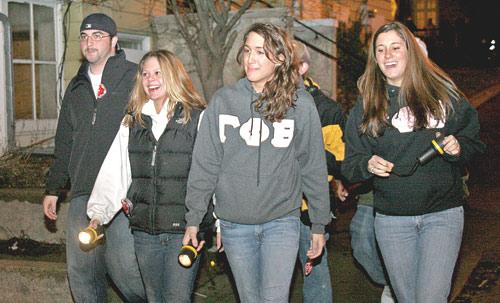One of the many wonderful qualities of the University of Wisconsin is its resources. While academic resources might be some of the first to come to mind, we must not forget the resources available on campus to keep us safe. With the recent reports of shootings and sexual assaults, I strongly encourage my fellow Badgers to not only look out for one another, but to also take precautions to protect themselves.
Safety First: Seeking to make students feel more secure on campus
While many of us might avoid calling SAFEwalk for a number of reasons, we should more strongly consider taking advantage of this wonderful free resource. Even if you’re not out meandering the streets drunkenly late at night, the potential for danger is still present, regardless of what state you’re in and where you are leaving from or heading to.
Fellow students working for SAFEwalk will be able to leverage their strength in numbers against any possible assailant. If you feel embarrassed or uncomfortable walking with them, you can request that they walk a specified distance in front of you or behind you. SAFE Nighttime Services also offers a Chimera Self-Defense Program that allows students to take more control over their safety by learning some of the most effective verbal and physical self-defense strategies.
If SAFEwalk just isn’t an option for you, consider investing in some pepper spray. While I was originally unappreciative of this Christmas gift from my mother, I have recently been very thankful to be able to walk home at night with this in my hands. These devices do not take up too much space on key rings, and they feature a locked position to ensure that you don’t accidentally spray yourself in the face when trying to unlock your door, or something of the like.
While the likelihood of encountering a situation that necessitates the use of pepper spray is slim, with the conclusion of a weekend that saw four separate shootings, it’s clear that you can never be too careful. Walking with this safeguard in hand not only supplies a potential method for self-defense, but also allows the carrier to feel more confident and less anxious.
Shots fired: Madison police investigate four weekend shootings
However, sometimes assaults occur in your own living quarters: the dorms. If you currently reside in a university residence hall, keep an eye out for your floor mates. Creating a sense of community and trust might just help reduce those sexual assault incidences, especially if students are willing to speak up about suspicious activity rather than just watch from a safe distance as the situation unravels. To protect yourself, make sure to lock your doors at night before you fall asleep. In some dorms, such as Ogg, the doors lock automatically when they close. On the other hand, two of the major freshman-dominated dorms in the Southeast part of campus, Witte and Sellery, require residents to manually lock their doors.
Additionally, if you don’t know someone very well, be careful when choosing to let them into your room if you’re alone. Though many people do hold good intentions, an individual’s true personality is not always transparent at first glance. And sometimes in an effort to make friends, students are not as confrontational as they are entitled to be in uncomfortable situations.
While there may be room for policy change on a larger level, we also need to take individual responsibility to protect ourselves and our peers. The suggestions above are not perfect solutions, but they are intended to help in the fight against all types of assault and danger on our campus. Also be sure to check out more ways to practice safe travel on campus and visit the Nighttime Safety Services Safety Tips page.
Payden White ([email protected]) is a sophomore majoring in community and nonprofit leadership and biology.














